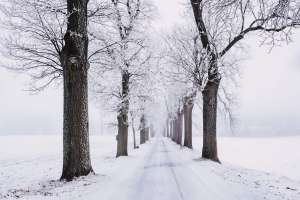While winters can be exciting, they bring plenty of trouble with them. You want your house to stay cozy through the winter. However, if you’re not careful enough, you may get an extra load of work to deal with. Ice and snow can damage your house badly. There are many precautions you can take to ensure that your home makes it through the winters. But, if you pay attention to your home, you can save yourself from tremendous expenses. So, it would help if you started taking care of your house as soon as the seasons change color. Here’s what your winter preparation program should look like:
1. Clean your gutters
Before winter, you have to deal with fall. There will be leaves, sticks, and even pebbles floating in your gutters. And as soon as winter hits, it will bring ice and snow with it. To ensure a comfortable winter, you must ensure water flows freely through your gutters so that ice does not build up and start seeping into your house. When gutters are clogged and the ice begins melting, you will have to deal with leaking ceilings and walls. You may want to install gutter guards after you’re done with a proper cleaning regime.
2. Get your pipes inspected
You need to ensure your pipes can push through winter. The best way is to get a water damage advisor to take a look at your pipes. These professionals can identify if you have potential cracks or rusted pipes that need immediate repair. They can also inform you whether your pipes can handle the flow if you have an overflow of water. If you live in an area that experiences rainfall with snow, your pipes will freeze. To avoid these situations from happening, get your pipes inspected.
3. Repair your outdoors
If you have a porch and cemented stairs, you may want to inspect them. Add rubber or any type of frictional material to prevent the steps from becoming slippery. It would help if you also caulked any cracks and openings to prevent moisture from entering your house. You also want to ensure that your door has rubber insulation underneath the doors to prevent more cold air. Unless you take care of these factors, expect water and snow from getting into your house.
4. Trim all outdoor plants
It is a good idea to trim all trees and branches. During winters, these plants will become scorched. Dry plants are a hazard. They can sway in the wind and damage your house. Some branches can even scratch your windows and break them. You also don’t want large branches to fall and get covered in snow. These become walking hazards and can hurt anyone passing by.
5. Add extra insulation to the attic and basement
Attics and basements tend to get cold. You need to add an extra layer of padding to ensure you get through the winter. If too much heat goes out of these rooms, the snow or ice can melt through the roof. Once the water is inside your house, it can refreeze. You can get ice build-ups that can block your crawl space and build ice dams around the house. Areas that need extra padding include crawl spaces and vents. So call a professional and get these areas fixed.
6. Have a reliable backup power source
Power outages and breakdowns are common during a snowstorm. You wouldn’t want to be stranded in winter without any power. Consider investing in a generator or UPS. While you’re getting a backup, you should also check your electrical wires. If your wires are exposed, consider getting them insulated. Or, if they look frayed or damaged, you may want to replace them. Winter is the wettest season of the year. Electricity and water don’t mingle well. You wouldn’t want to risk a short circuit or a power outage in your house.
7. Have your heater serviced
Your heater may go unattended throughout the year. So there may be dust, frayed circuits, and unclean filters. Don’t ever turn up the heating on anything covered in dust. It would help if you made sure the surface was clean and the device was usable. Dust and large pieces of dirt can catch fire. The fire may not spark immediately but can gradually catch on. If you’re not paying attention, you can endanger your family. So, have a professional test out your products before usage.
8. Get insurance
It would help if you looked into insurance that can help you pay for house damages. Browse a few options before signing any documents. Ensure that the insurance provider offers comprehensive coverage of water and snow damage.
9. Check your garage
People treat garages like storage rooms. While it’s not unusual to store things in your garage, keep space for your car. Ensure your garage door is functioning correctly. There should be no gap underneath the door. You may risk snow coming on and melting inside your house. You should also get the roof of your garage repaired and put everything in waterproof containers. While these methods may sound like a hassle, they’re essential. Water leakage is a menace. You lose precious items and even add more cost to your expenditure.
10. Disconnect all hoses
If you have a backyard, you need to disconnect all hoses. These contraptions are prone to dripping. If the temperature drops to below freezing point, the hose can burst. Since these hoses get connected to taps, you can end up losing the fixture. Not only does structural damage happen, but you also risk water seeping into your house. It will also help if you turn off the valves to your outdoor taps. Consider installing water detection systems around your home. These can pick up the water volume and inform you when you need to get concerned.
Wrap up
Winters brreling with its water and ice. While you may associate the season with cozy fires and restful nights, you can’t ignore leakage. So for the season, you need to pay attention to your house. Start by working on your pipes and ensuring there are no leaking taps. You may want to increase the insulation in your attic and basement area. Repair any visible cracks or openings to prevent water seepage. Get a home insurance plan that covers most damage, especially destroyed pipes and leaking gutters. Also, get all your electrical wiring and heaters serviced. The last thing you want is anything bursting or leaking because you weren’t careful. So, while the task is daunting, it is a necessity.
Read More: Essentials Every Guy Needs This Winter











